- 1% proportional increase in female applications to study STEM subjects at higher education
- An increase in female applications to study Computing in higher education – 19% of total UCAS applications in 2023
- 46% of all UCAS applications for Physical Sciences now from female applicants
- A slight increase in the number of female applications to study Mathematical Sciences fails to stem worrying broader trend – 2% overall decrease since 2019
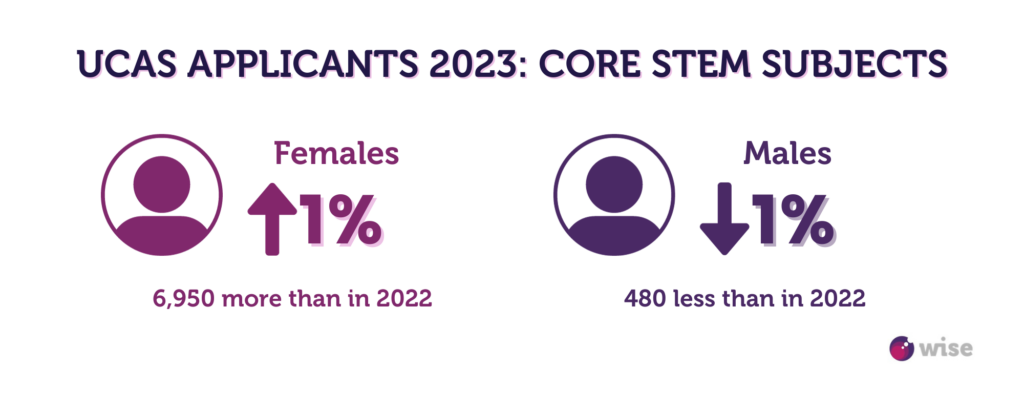
Recently released data from UCAS – the admissions service for all UK-based applications for higher education – provides a useful overview of women and girls’ current feeling towards, and engagement with, STEM subjects in higher education.
UCAS applications data is also useful indication of the what the future female talent pipeline might look like for the STEM sector.
We continue to see broadly positive trends overall – with more women and girls electing to study STEM subjects at university than ever before. Whilst female applications to study on STEM courses still only account for 26% of the total STEM subject applications, there is substantial gender variation between different subjects.
Computing
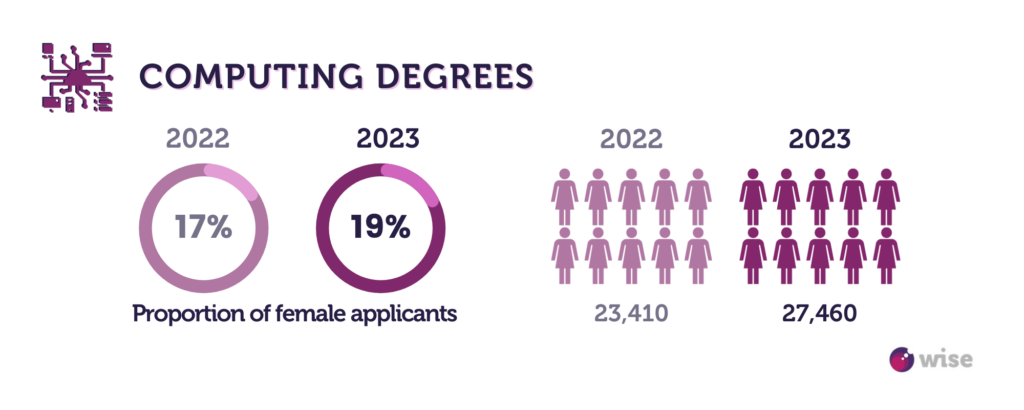
Whilst the new UCAS data shows broadly encouraging trends, progress remains rather slow. Notably, the 2023 data highlights that female applications to study Computing continues to rise. Female applications to study computing in 2023 made up 19% of the total yearly applications – compared to 15% in 2019.
This news of the 2023 UCAS comes after a recent study by King’s College London and the University of Reading found that current school system in England is failing to encourage girls to participate in the subject and aspire to a career in the field, thus furthering the gender imbalance within the computer science workforce. Whilst this data does suggest that Computing is increasingly seen as a viable and desirable career choice for women and girls, the increased number of applications (4% in 4 years) still does not adequately reflect despite the huge demand for computing graduates and the dramatic growth of the digital sector.
Physical Sciences
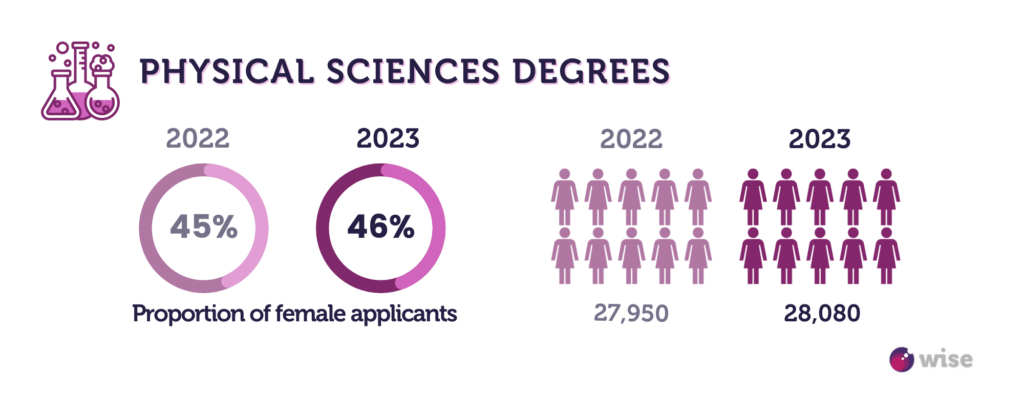
We celebrate the fact that Physical Sciences is nearing an equal gender split for yearly student applications. 46% of UCAS applications in 2023 were made by females (a substantial increase from 41% in 2019). UCAS applications from female candidates has risen from 25480 in 2019 to 28080 in 2023. Furthermore, this represents a proportional increase in female applications from 41% to 46%. This encouraging trend suggests that women and girls increasingly see Physical Sciences as a viable and appealing career choice.
Architecture, Building and Planning
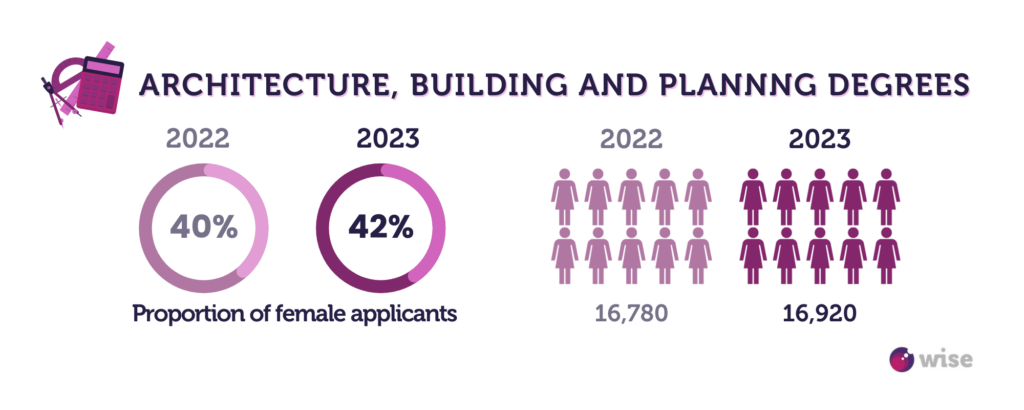
In 2023, 42% of all UCAS applications to study Architecture, Building and Planning – UCAS applications by females for Architecture, Building and Planning are up from 40% in 2022 and 36% in 2019, which suggests the subject as an increasingly appealing option for women and girls.
Engineering & Technology
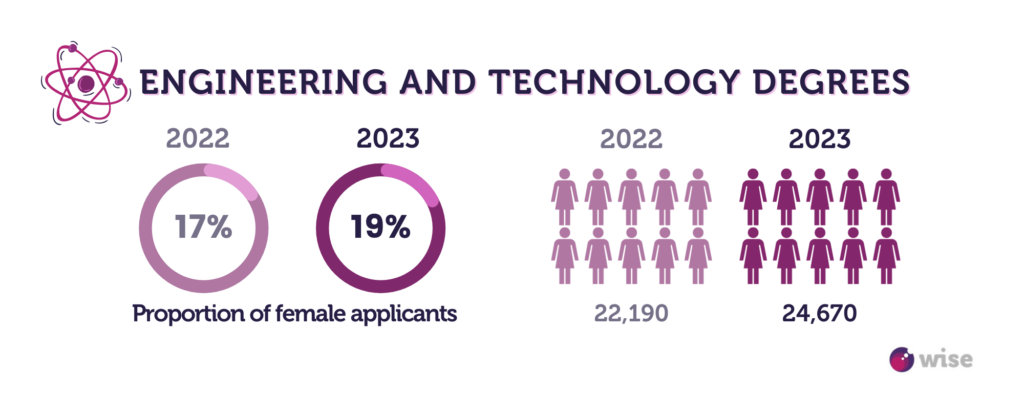
UCAS applications from female candidates has risen from 25480 in 2019 to 28080 in 2023. In 2023, female applications made up 19% of total UCAS applications to study Engineering and Technology. This welcome positive trend comes after female applications to Engineering & Technology stalled at 17% of total applications for 2019, 2021 and 2022.
Mathematical Sciences
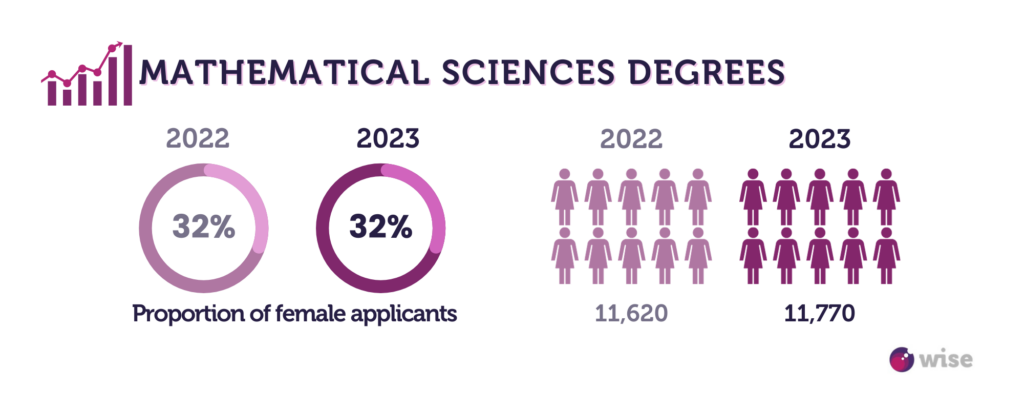
In a worrying longitudinal trend highlighted by this data, female UCAS applications to study mathematics have substantially decreased since 2019 and remain relatively low. The percentage of female applicants applying to UCAS is not improving year-on-year: 23% of UCAS Computing applications came from female applicants in both 2022 and 2023 – down from 24% in 2019.
In real terms, 2023 saw a small but welcome increase female UCAS applications from 2022, from 11260 in 2022, to 11770 in 2023. However, this number is down from 12650 in 2019. In contrast, in the same timeframe, the number of males applying to study mathematics has remained relatively steady
A note on data sources
This analysis has been produced using UCAS Undergraduate statistics data, released on 2023 SQA results day release, 8th August 2023. More information on the UCAS data and analysis can be found here.
